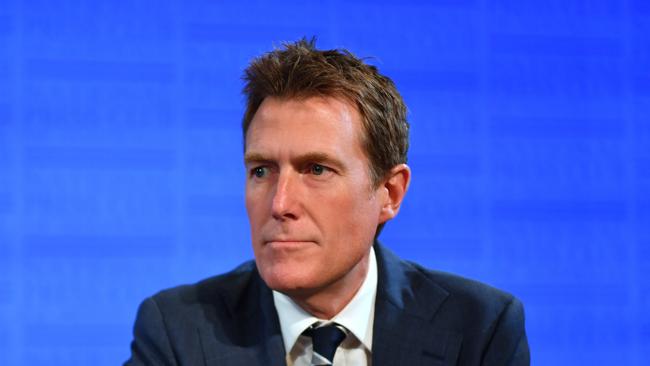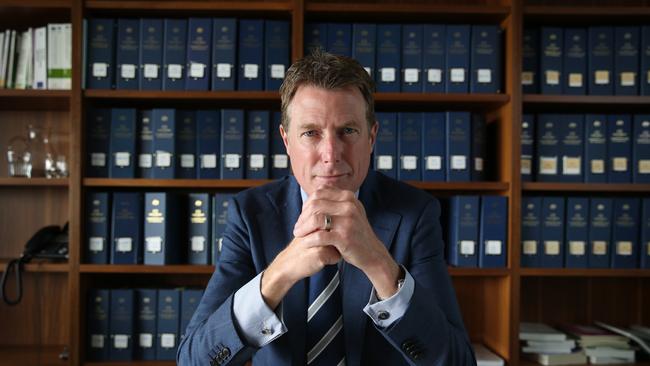Liberals take sting out of move to rein in unions
Attorney-General Christian Porter has backed changes to the government’s Ensuring Integrity Bill that are designed to neutralise criticism.

Attorney-General Christian Porter has backed changes to the government’s Ensuring Integrity Bill designed to neutralise criticism unions could be deregistered or their officials banned for minor paperwork breaches.
The government has backed an amendment that essentially means the Federal Court would have to be satisfied that the gravity of law-breaking by a union or an official justified a ban or deregistration.
READ MORE: Ensuring Integrity Bill: push to soften proposed laws banning unions ‘largely workable’, says Christian Porter | Union-busting bill vote delayed | One Nation union-busting bill changes get nod
Union officials will be subject to a new demerit points system which means they could be banned if they commit minor multiple breaches totalling 180 penalty units or their union accumulates 900 penalty units.
However, a construction union official could be banned for one breach as they are subject to higher penalties under workplace laws specific to the building industry.
Mr Porter, employers or others with a sufficient interest will not be able to apply for a ban or deregistration order but the government has added a new provision allowing any person to refer a matter to the Registered Organisations Commission if they reasonably believe they have a ground to apply.
It also proposes a new trigger for a public interest test to apply to union mergers, with the test to apply to a merging union that has committed 20 legal breaches in the past decades.
Under the criteria, the government said the test would apply to a merger proposal by the Construction Forestry Maritime Mining and Energy Union, the Transport Workers Union or the Australian Workers Union.

Mr Porter said the amendments to the bill, which will be debated in the Senate on Monday ahead of a vote, would provide “additional safeguards” while ensuring unions and their officials “finally obey the law”.
He said the crossbench’s constructive approach was “in stark contrast to the ‘nothing to see here’ approach adopted by the Labor Party which appears totally captured and indebted to the CFMEU”.
Labor and the ACTU on Friday said, despite the changes, the bill would still allow unions to be shut down and officials banned for paperwork breaches.
Opposition industrial relations spokesman Tony Burke said the changes to the “anti-worker, union-bashing legislation do not even come close to fixing this extreme and dangerous bill”.
“The amendments do nothing to limit the grounds for the disqualification of union officials or the deregistration of entire unions,” he said.
“It will entrench the double standard where if a bank breaches the law 23 million times the Prime Minister considers it ‘a matter for the board’, but three paperwork breaches could bring down an entire union without the members getting a say.”
ACTU president Michele O’Neil said the amendments were a desperate attempt by the government to convince the crossbench the bill was not a “dangerous and hypocritical exercise in union-busting, right at the time Scott Morrison has announced his desire to cut workers’ rights”.
“The amendments do not limit the extraordinarily wide range of grounds on which a union can be deregistered and for which a union official can be disqualified. These still include simple paperwork mistakes, for which unions are already disproportionately punished,” she said.
The Greens will move an amendment seeking to stop the legislation coming into effect until a national integrity commission is established.
“Parliament shouldn’t force workers and their unions to abide by new ‘integrity’ standards while letting politicians continue to escape scrutiny,” Greens MP Adam Bandt said.
“If the government is so committed to integrity it should apply it across the board with an impartial national integrity commission instead of just targeting workers and unions.”




To join the conversation, please log in. Don't have an account? Register
Join the conversation, you are commenting as Logout